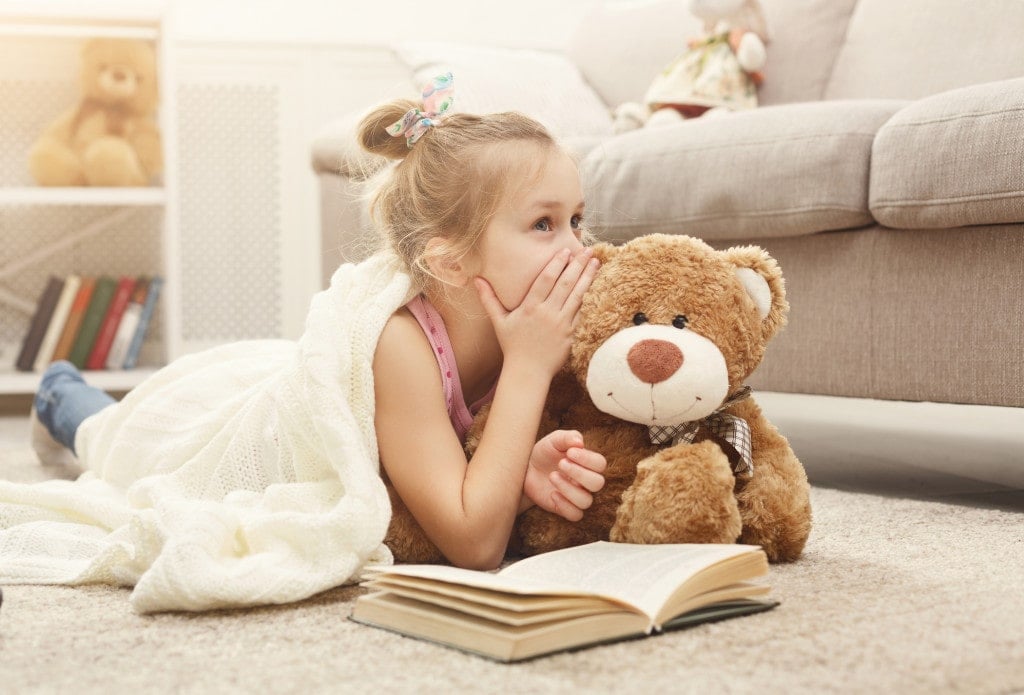“Shhh . . . it’s a secret!” As adults, most of us have learned the art of keeping secrets, whether it be a present or surprise for a loved one, a piece of gossip, or knowledge of someone else’s transgressions (or our own). We learn nuance and the social behaviors around when and why we might choose to be secretive. Often, secret-keeping can be seen as a protective mechanism to protect relationships that we value. However, for children, they don’t yet know what kinds of secrets are appropriate to keep, which can expose them to harm.
Secrets Are Not Safe
Secret keeping is normal social behavior, but it can be quite a complicated process to learn and understand. To keep a secret, you first must understand that some information is acceptable to be shared publicly and freely, while other information should not be shared with others (except the person for whom the secret is being kept).
Also, in particular, keeping a secret can be tricky for children because they don’t yet have enough social and general life experience to fully understand which secrets might have significant (and potentially negative) impacts on their relationships/friendships. More disconcertingly, children are not always equipped to know which secrets are safe to keep or that nuance between a “good” and “bad” secret.
How to Teach Kids Not to Keep Secrets
Most secrets are innocent enough, but unfortunately, keeping some secrets puts our children at risk of harm. Or they can perpetuate harm that is already occurring. So, caregivers need to help their children understand different kinds of secrets. We should also help them develop their protective behaviors, which will help keep them safe.
Teach them what a secret is.
A secret is something we keep to ourselves and don’t openly share with others. However, we need to help our children understand different types of secrets. Explain there are “good” and “bad” secrets and describe how they might be able to tell the difference. Our younger children might not intellectually understand the difference, which is why we should describe what a good or bad secret might be. But you can help them understand what different types of secrets might feel like in their body, including feelings or sensations.
Bad secrets can make them feel yucky, sad, worried, scared, angry. They might feel nauseous, have a sore tummy, get sweaty, shaky, or feel dizzy. They may have rapid or shallow breathing or have their hearts race. This is a typical response in the body when it feels under threat (physically or emotionally). If you can help your child understand their physical and emotional response to a request to keep a secret, it will help them decide what to do next or how to respond to the secret they have been asked to keep.
Do you need to keep secrets in your family?
It would be better to avoid keeping secrets in your household, even good ones. It’s important to build and encourage open conversation in your home, even if it means having a challenging or awkward conversation. Ultimately if your child is ever in a situation that could potentially cause them or someone else harm, it is important that they feel comfortable telling you the truth or about the situation which has occurred.
Also, think about the worst-case scenario if your child does blurt out a secret. Okay, so the pregnancy you were keeping secret might be out. Or that surprise party you had lovingly planned might be ruined. But weigh this up against the potential consequence of keeping a dangerous or unsafe secret.
Adjust your response to disclosures of secrets.
Part of feeling comfortable to tell the truth can also mean we need to be mindful as parents about how we respond to disclosures of secrets. Sometimes our children keep secrets because they want to avoid punishment (“No, I don’t know who broke your favorite vase.”). We need to ensure that we still discipline or deal with the behavior/actions of our children. But we need to be careful in the way we do this so we don’t elicit shame or fear, which can cause them to keep more secrets in the future.
Instead, talk through actions and consequences, expected and non-expected behaviors. Teach them about right and wrong (which children are very good at understanding). And help them understand that, while the behavior might not be acceptable, you still love them and care about them. If your child can see the repercussion and impact of their action, they are less likely to feel ashamed, confused, or fearful about any consequences you need to enforce. Their trust in you is likely to be protected and maintained.
Talk about surprises instead of secrets.
We might plan a surprise party for a loved one. Our children need to know that in certain situations, it’s not the most acceptable thing to talk about the surprise. However, we also need to talk to them about what makes surprises different than secrets. A surprise feels good. It’s exciting or fun. Surprises are also time-limited. Letting people in on the surprise will occur at some point soon . . . surprises aren’t kept forever.
Setting them up with a safe person they can talk to.
Let them know that if anyone ever does anything that makes them feel unsafe or puts them or another person in danger, it’s important that they speak to an adult capable of protecting them. As they get older, you might specifically talk to them about what a dangerous or bad secret might be. Don’t assume they know. You might have to give them some developmentally appropriate context.
Teach them safe touch and consent.
Unfortunately, some of the bad or unsafe secrets being kept by children relate to abuse and other harm/dangers. So, we also need to give our children a context of safe touch and consent. Use the proper names for their genitals: penis and vagina. Teach them that no-one should be touching any part of their body which would be covered by a bathing suit or any part of your child’s body if it makes them feel uncomfortable (see my previous comments about what bad secrets feel like to help them understand their physical and emotional response). Help your child to understand that only you or a doctor should be the only ones who might need to look at or touch their genitals for medical or health reasons. But that even this kind of touch should never be a secret.
You can also encourage them (based on their developmental level) to be as independent as possible regarding self-care like toileting or bathing. Be very transparent about anytime you might need to have contact with them and why. For example: “Okay, we need to wipe your bottom after going to the toilet. Can you try first, and then I will take a look to check everything is all clean. Is that okay?”
It’s also important to teach them about consent. They must learn that other people should respect their boundaries, including adults. Don’t force physical contact, like hugging or kissing someone, as it reinforces to children that adults have permission to make them be physical with someone when they don’t want to. I’m not saying you shouldn’t encourage your child to say hello, or goodbye, thank you, or sorry, but don’t enforce the physical component. Instead, you might say something thing like, “Granny and Grandpa are going home now. Would you like to give them a cuddle, high five, or just say goodbye?”































